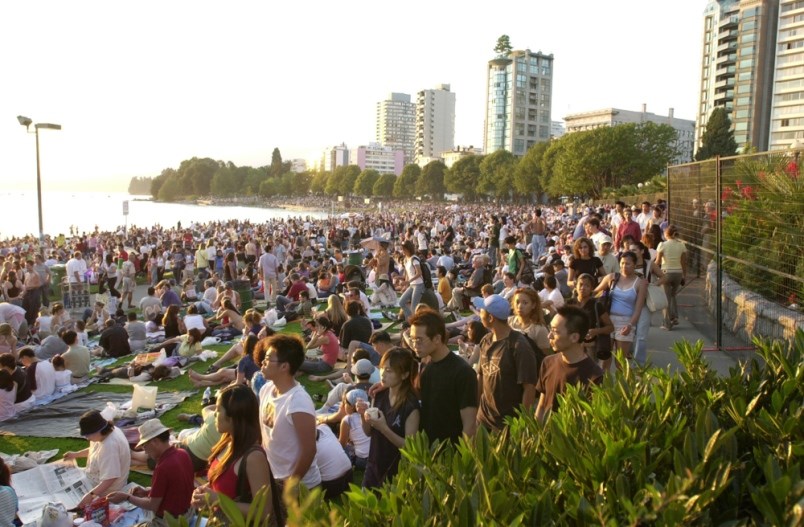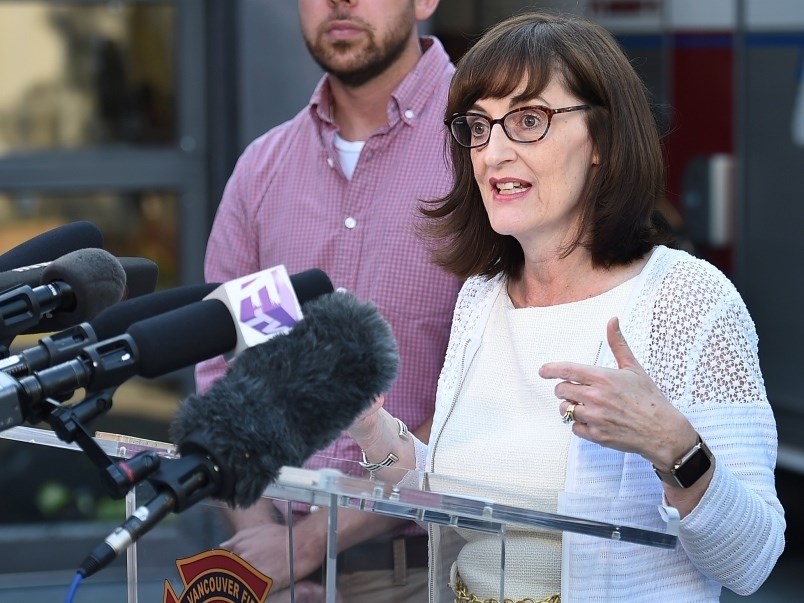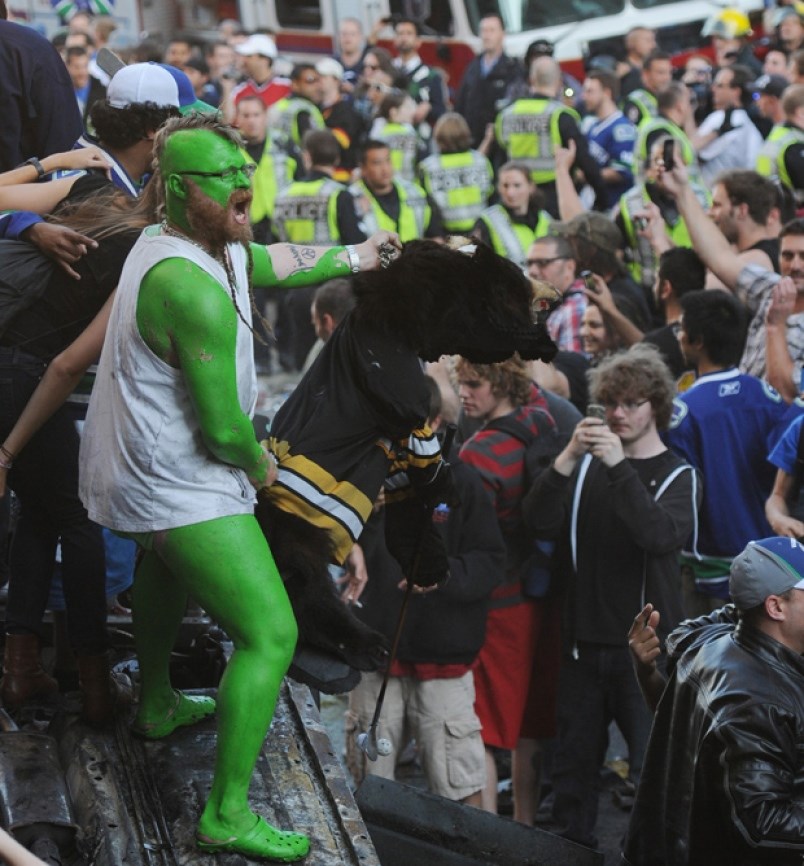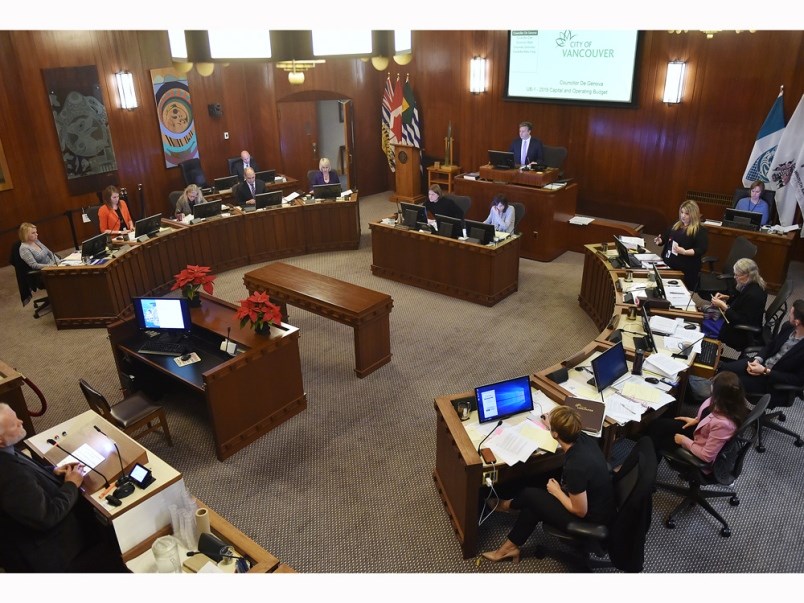Column: 12th&Cambie
Lots of talk at Vancouver council these days about booze.
Councillors say they are hearing that people want to be able to legally drink booze in public spaces and at beaches and parks.
The argument is many residents don’t have access to personal outside spaces — yards and balconies — where they can safely and legally drink their own store-bought beer, or a glass of wine.
That reality, they say, has become more pronounced during the pandemic and physical distancing measures, with people shut in their homes for months.
The extension of that argument, which was articulated by some councillors Tuesday, was that not everyone has a budget that allows for expensive drinks on a restaurant patio.
There’s also the issue of people of colour more likely to be targeted for drinking a beer at the beach than a white guy like me, as was argued by Coun. Michael Wiebe and Will Shelling, a member of the equity and inclusion office at the University of B.C., who spoke to council.
“As a black man myself, I have accepted and faced a hard reality that I will face extra scrutiny when it comes to conduct in society,” Shelling told council by telephone.
“I’ve witnessed many of my peers imbibe responsibly but illegally on Vancouver’s beaches, but I’ve chosen not to because of the difficult reality of disproportionate rates of ticketing against black, Indigenous and other persons of colour.”
If all that information wasn’t enough to digest, there’s also the push from unlicensed cafes and restaurants for temporary licences to sell booze to help them recover — or attempt to recover — from the losses suffered from closures.
My thought, and maybe yours: Could not have predicted booze was going to be such a big topic for council during the pandemic, but here we are.
So what is council doing about all of this?
In no particular order, it said yes to unlicensed cafes and restaurants, no to drinking in public spaces and yes to booze in select parks and beaches.
 Vancouver park board is scheduled Monday to discuss possibility of legal drinking on select beaches and parks this summer. File photo Dan Toulgoet
Vancouver park board is scheduled Monday to discuss possibility of legal drinking on select beaches and parks this summer. File photo Dan ToulgoetBut that last one about parks and beaches is not in council’s jurisdiction, with the park board scheduled to discuss the topic at next Monday’s board meeting.
So, you’re probably wondering, why did councillors spend the better part of Tuesday afternoon debating and amending amendments to the amendment, taking recesses over points of order and prattling on about allowing the legal consumption of alcohol at beaches and parks when it’s not in their jurisdiction?
Very good question, and one asked by Coun. Sarah Kirby-Yung, a former park board commissioner, at the end of the debate — not, sadly, at the beginning.
“What I really struggle with today, to be honest, is understanding why we are spending council time on something that’s not under the jurisdiction of Vancouver city council,” Kirby-Yung said.
“There are so many critical issues that we have across the city, whether it’s the Downtown Eastside, mental health and addictions, housing, vulnerable people that are out of work, people being exposed to COVID, not feeling safe to go on transit, how we’re going to move forward with greening our buildings…I’m perplexed to why council’s dealing with this in the first place.”
Anyway, they dealt with it, with the mover of the motion — Coun. Christine Boyle — explaining it was simply meant as an “advocacy motion” to encourage park board commissioners to allow people to legally drink booze at select beaches and parks this summer.
Which is interesting, since this isn’t a new idea for park board and one that was introduced by park board commissioner Dave Demers in December 2018.
Demers successfully requested staff conduct a feasibility study for a pilot project that would allow people to drink booze at select parks and beaches.
That study was supposed to be completed by the end of 2019.
Which sets up Monday’s park board meeting. The report isn’t on the agenda but another motion from Demers is, written in much of the same language used by Boyle.
Demers is asking for a “temporary enactment” of a bylaw that allows people to drink booze at select beaches and parks “in time for summer 2020.”
Those beaches and parks haven’t been named.
I phoned Demers after the majority of council approved Boyle’s motion Tuesday night. He was happy and wasn’t concerned what critics are saying about council interfering in park board business.
“It’s not a push from council, but more of a pull,” said Demers, noting the issue now has a high profile in the news and community.
“It’s adding pressure on everybody, and I think it’s helping.”
It’s no secret to any Vancouverite who has visited a park or beach that drinking already happens in those spaces and has for years, despite it being illegal.
 Dr. Patricia Daly, chief medical health officer for Vancouver Coastal Health. File photo Dan Toulgoet
Dr. Patricia Daly, chief medical health officer for Vancouver Coastal Health. File photo Dan ToulgoetIt’s also no secret to regular readers that Vancouver and the rest of the province likes to drink more than other people in the country,” as Dr. Patricia Daly told council in a May 27 presentation.
Those who read my story Wednesday about council saying no to legal drinking in public spaces will recognize these sentences and quotes below from Vancouver Coastal Health’s chief medical health officer.
Daly said the pandemic has had a great effect on the mental health of Canadians and that evidence showed 25 per cent of Canadians were drinking more alcohol.
Which, she said, was concerning in B.C., the province with the highest per capita alcohol consumption rate in Canada and home to a “significant binge-drinking culture.”
“Public health leaders in B.C. have identified this increase in alcohol consumption as one of the most serious negative unintended consequences of the COVID-19 pandemic response,” Daly said.
“Also, alcohol has recently passed tobacco and other drug overdoses as the most common cause of preventable hospitalizations in the province.”
Added Daly: “In fact, B.C. ranks number one among Canadian provinces in its rate of hospitalizations for alcohol misuse — nearly 50 per cent higher than the Canadian rate.”
Council also heard from Deputy Police Chief Howard Chow that police already have problems with people drinking booze at beaches and parks, with eight officers working in the southwest of the city issuing 6,000 liquor warnings and 401 tickets over three months last year at beaches such as Kits and Jericho.
“When I’m talking about those 6,000 incidents where we’re stopping people on the beaches that are drinking, I can tell you that’s just scratching the surface,” he said.
“Almost all of our calls that are relative to this are complaint driven. It’s because people are fed up with a group that’s getting rowdy that have been drinking that’s causing problems.”
He said couples having a glass of wine on the beach is “really not our issue, our problem” — a point he made to a question from Coun. Pete Fry about discretion used by officers when enforcing liquor laws.
In fact, Chow said, he supports a pilot project at beaches and parks.
“I support a measured approach in terms of a pilot study where we’re looking at the impacts before and after in the community…and on health and on us,” he said.
“If it’s something like that, with enough constraints and oversight, I think it’s very viable.”
So over goes the issue to park board.
Fry, meanwhile, is still not happy that five of his fellow councilors shot down his motion to have city staff look at implementing a pilot project for drinking in select public spaces.
His argument is that adults should be treated as adults, with impressive efforts to flatten the epidemiological curve in B.C. proof of how responsible the majority of residents are in this city and across the province.
 The Stanley Cup riot in June 2011. File photo Dan Toulgoet
The Stanley Cup riot in June 2011. File photo Dan ToulgoetMaybe so, but I do recall a similar comment from Penny Ballem when she was city manager. I asked her whether there was any chance that people were going to riot in the streets after Game 7 of the Stanley Cup Finals in 2011 — essentially repeat the riot of 1994.
She was standing on West Georgia in a Canucks jersey, fielding calls when I asked her that question. The Canucks were losing to the Bruins 3-0 at that point.
“This city has matured so much since then,” she said of the riot that occurred after the Canucks lost to the New York Rangers in another Game 7.
“We’ve really learned a lot, and I think there’s a very different sense of how important it is not to do that. This is a big crowd and there’re a lot of people downtown. We’re being very careful, but I don’t think anyone thinks there’s going to be anything like that.”
We all know how that story ended.
Yes, different circumstances and maybe an unfair comparison, but booze was at the core of it, as the two-inch thick independent riot report concluded.
Have we matured since then?
Depending on the will of park board commissioners Monday, we may find out whether Vancouverites and their visiting suburban neighbours can handle their booze in parks and beaches this summer.
Many, it seems, are already capable.
The gong show that is the Granville strip on weekends is another story, as is the frustration of Canucks’ fans fed up with an organization’s inability to build a winner.
It’s enough to drive someone to drink.
@Howellings



